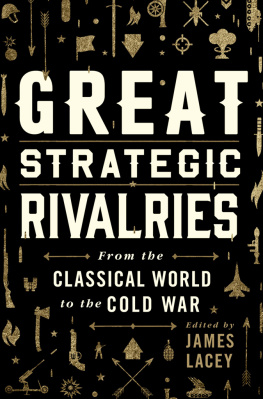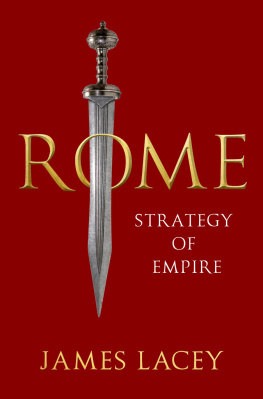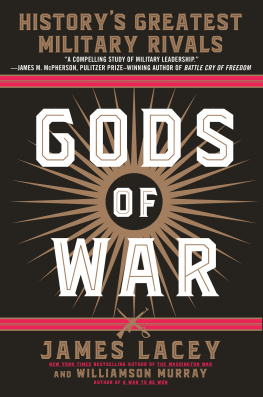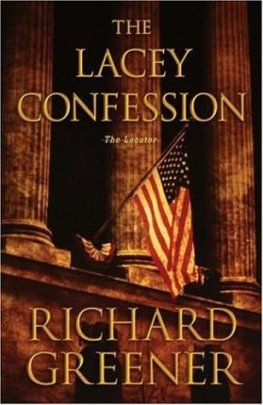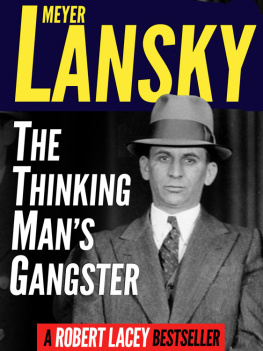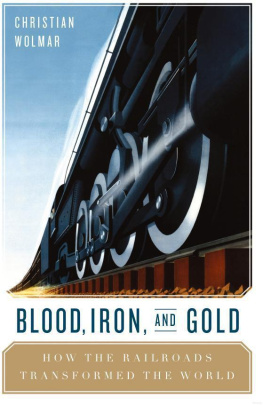GOLD, BLOOD, AND POWER: FINANCE AND WAR THROUGH THE AGES
Victory has always gone to the side with the more flourishing production base.
Paul Kennedy,
The Rise and Fall of Great Powers1
Professor Kennedy is wrong. Victory has not always gone to the side with the greatest materiel resources, although that often remains the best wager. Rather, it has gone to the side best able to mobilize its resources for the decisive effort of war. Persian production, for example, far exceeded anything available to Alexander, yet Persias mighty 200-year-old empire collapsed in an historical twinkle under the successive hammer blows of the formidable Macedonian army. Likewise, the barbarians who later brought Rome to its knees possessed almost no production base. Yet, these barbarians eventually massed sufficient force to collapse the greatest empire in history, which, for a variety of reasons, was no longer capable of mobilizing even a fraction of its latent power. In later periods, one need only look at tiny Britain, which for centuries punched far above its weight in the international arena as a result of its superior ability to mobilize its relatively meager national resources for war.
Since the start of organized warfare, the crucial sinew of war had been endless streams of money.2 For as long as the money held out, there was always a well-armed mercenary for hire. On the other hand, when the money was gone, the war ended as armies dissolved for lack of pay. By World War II, however, money was no longer a crucial concern of the major belligerents. In every World War II case, production capacity and manpower were exhausted long before the wherewithal to pay for them. Money concerns only came to the fore when one nation exhausted its production base and had to purchase munitions from other nations. The best example of this was Britains rapid depletion of its foreign reserves to purchase munitions from the United States in the early days of World War II, a looming financial disaster that was averted only by the institution of Lend Lease by President Franklin Roosevelt.
Throughout history, power has flowed not out of the barrel of a gun, as Mao famously claimed. Rather, it has derived from a nations ability to amass sufficient funds to prosecute a war. In other words, the ability to buy Maos guns and the ammunition that goes with them has been, and remains, the crucial element of any strategic policy.3 As Presidential advisor James Carville famously said, Its the economy, stupid, and in war, this particularly means the financial aspects of the economy. Despite 3,000 years of experience, historians often ignore the financial aspects of warfare. To some degree, this is understandable; after all, it was barely more than a generation ago that most battle and campaign narratives neglected the effects of logistics. Despite general awareness of the old adage, amateurs talk tactics, while experts talk logistics, historians still largely ignored logistical concerns, except for the periodic mention of famine-induced disasters. One probable reason for this neglect is that logistical studies are boring, and recounting logistical matters invariably slows down the narrative pace of a campaign history. After all, who really wants to read about how many trains it took to move ammunition to the front in 1916 or the hay consumption rate of one of Marshal Joachim Murats cavalry divisions?
If military historians find logistics boring, they find economics and finance are positively coma-inducing. Despite their begrudging allowance of logistical concerns into the mainstream of military history, many historians (there are exceptions) are still barring the door to the inclusion of economic matters. Two factors likely explain this neglect: economics lacks drama, and it is difficult to understand. Historians who write of armies sweeping across continents and who paint verbal pictures of brutal battlefield carnage have little desire to delve into the economics that drive the character and form of war. Furthermore, the dismal science of economics is not a subject military historians typically have invested much time in learning.5 Unfortunately, this neglect will likely widen, as economics continues on its current path toward pure mathematics and model-based econometrics, while slipping further away from its original moorings within a larger topic of political economy.
ANCIENT WORLD
HERODOTUS, THE FATHER OF HISTORY, or if you believe Plutarch, the father of lies, lays out for us that history of the start of the great wars without ever really explaining how relatively insignificant Athens mustered sufficient military force to defeat the fully mobilized might of the Persian Empire. As such, a brief case study examining the relative wherewithal of the two contenders might illuminate why a thorough comprehension of the economic, and particularly financial, context of any conflict is crucial if one is to understand its outcome.
Persia vs. Athens.
The Limits of Power.
In the 5th century BC, Persia was the sole superpower.6 Its land mass covered 7.5 million square miles, reaching from the Aegean Sea to India, and its population was probably in excess of 40 million. Measured against that standard, Athens was feeble.7 All of Attica amounted to less than 4,000 square miles, and in 490 BC possessed probably 150,000 citizens.8 It is no wonder that many historians considered Athens stand at Marathon a forlorn hope, and its victory akin to a miracle. What is therefore no less remarkable is that Athens, with a full understanding of Persian wealth and power, still decided to stand against the titan. Or did Athens know something that has mostly been overlooked by later historians?
The first thing to understand about ancient empires is that the latent power that appears available from just a cursory look at the numbers is illusionary. Not discounting the organizational achievements of Darius, it is fair to say that the Roman Empire possessed a superior organization. Despite this, Rome, even at the height of its power, normally maintained less than 2 percent of the empires total population under arms, and found that it could only sustain 3 percent mobilization for a limited period of time.9 It is safe to assume that Persia, despite a slightly inferior administrative organization, could maintain an approximately equal percentage of it population under arms.10 It should also be remembered that throughout most of history, the bulk of the population survived at the barest subsistence level, and even the slightest change in conditions could bring on famine. In these societies, every hand was needed in the fields, and only a small proportion would be available for a professional military.11
Two percent of the population of Persia equates to 800,000 men. But remember, this is a high estimate of Persian capabilities, and there is reason to believe that the Persians failed to approach these levels.12 In this regard, another comparison with Rome may be beneficial. In the Roman Empire, approximately half of state revenues went to pay the army.13 However, after Darius early years of high expenditures, a large proportion of Persian revenues were simply hoarded. Moreover, Rome paid a high price in political stability, as such large forces concentrated at various points throughout the empire, which provided a constant temptation for their commanders to use them in a bid for ultimate power. Darius, who had come to power by way of a military coup, knew better than anyone the danger of maintaining large standing forces without an external enemy to hold their attention. Therefore, the Persian permanent military establishment was always small and counted on local levies in the event of war. In support of this claim, one only has to look at how long it took to mobilize sufficient forces to crush the relatively minor Ionian Revolt5 years.



